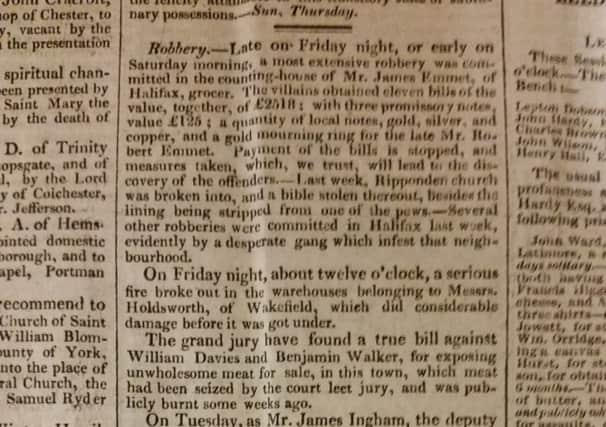Leeds nostalgia: Men on the edge of reason


As the crisis deepened, the Leeds Intelligencer and Yorkshire General Advertiser carried a story about two men, William Davies and Benjamin Walker, who had been found guilty by the grand jury of selling unwholesome meat in Leeds – the meat was seized and burned in a public display.
It was not the only crime of note that week – there was report of a “most extensive robbery” at the house of one James Emmett, a grocer from Halifax, from whom was stolen 11 bills totalling £2,518, a quantity of cash, gold, silver and copper and a gold mourning ring to his late wife.
Advertisement
Hide AdAdvertisement
Hide AdFinally, a report of ‘drink driving’, although not in a motorised vehicle of course, but a horse and cart, which was found by a James Ingham, a deputy constable of the borough, to be weaving across the road, its driver intoxicated to the point where he managed to steer into the path of a cart and overturn his carriage. The report said the driver sustained significant injuries.
Jumping forward to January 27, 1915, the war in Europe was well underway with soldiers enduring daily harships.
One, Private Albert Naylor, of the King’s Royal Rifles, wrote as a prisoner of war at Altdamm, Germany. He said: “It made me smile when I read about stray shots. There are no stray shots in this war. There has never been anything like it, nor will there be again,” adding: “We are very poorly fed. From twelve midday to seven in the morning is a long time on an empty stomach. For breakfast we have 6oz of black bread and a basin of coffee with no milk or sugar and dinner is potato soup.”